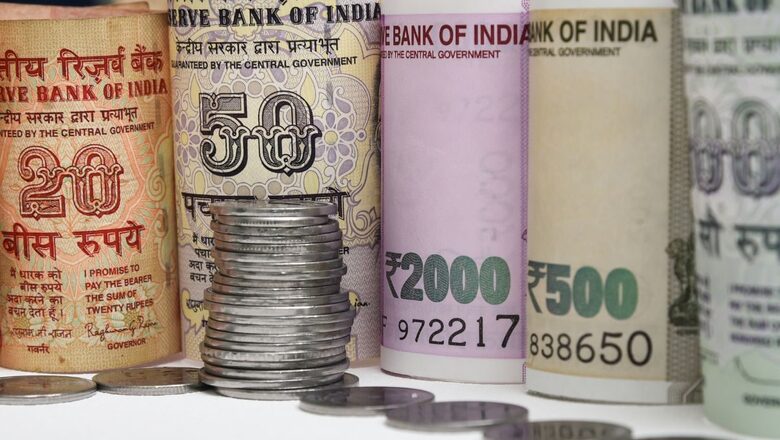
views
In the realm of democratic governance, the unequivocal transparency of political financial dealings stands as a critical imperative. India, the cradle of the most populous democracy globally, embarked upon a quest for lucid electoral financing with the advent of electoral bonds in 2017. Despite this, the inception of these financial instruments has incited fervent debates and garnered dissent from a spectrum of stakeholders.
Initially heralded as a tool for purifying the opaque financial channels of India’s political entities, electoral bonds are now being scrutinised in the nation’s supreme judicial forum as a potential “corruption of democratic principles”.
The latest legal challenges presented to the Constitution Bench of the Supreme Court of India call into question the “selective secrecy” permitted by the Electoral Bonds Scheme (EBS). It brings to the fore a critical issue: should the privacy of specific individuals or bodies be given priority over the general populace’ constitutional entitlement to information as guaranteed by Article 19(1)? The five-judge Constitution Bench presided over by Chief Justice DY Chandrachud, on November 2, 2023, withheld its verdict on the suite of petitions disputing the legitimacy of EBS. Concomitantly, the bench also issued an interim order, mandating the Election Commission of India (ECI) to aggregate and disclose a detailed account of all political donations received by political entities in India up to the specified date of September 30, 2023. At the same time, the court remarked that the scheme suffered from “serious deficiencies” and “opacity”.
What are Electoral bonds and why are these problematic?
The institution of electoral bonds in India was initiated by the then Finance Minister Arun Jaitley during the 2017 budget announcement, with the objective of injecting greater transparency into political contributions and sanitising the political financing landscape of the nation. This reform was targeted at streamlining corporate donations and mitigating the pervasive influence of undisclosed, non-transparent funding within the political arena.
Electoral bonds, designed as confidential financial instruments, enable both individual and corporate benefactors to secretly fund political parties in India. To instil a degree of regulation, only political entities that have secured at least 1 per cent of the votes in the most recent national polls qualify to cash in these instruments. Available in denominations from Rs 1,000 to Rs 1 crore, the bonds can be acquired exclusively at designated State Bank of India branches, mandating the use of traceable transaction methods such as bank transfers or electronic payments. The identities of the donors remain undisclosed, allowing political organisations to anonymously redeem the bonds within a fixed period of 15 days, channelling these funds into electoral campaign endeavours. There is no cap on the number of electoral bonds that can be purchased.
Historically, any political donation over Rs 20,000 necessitated reporting to the Election Commission, which was integral for donors to receive an income tax deduction. However, with the introduction of electoral bonds, donors can now anonymously contribute substantial amounts, ranging from Rs 20 crore to even Rs 200 crore, bypassing previous disclosure requirements.
Legislative revisions have endowed political parties with three significant liberties. First, the obligation to report/publish bond-derived contributions under the Income Tax Act, 1961 and Representation of People’s Act, 1951 was nullified. Second, the revocation of the corporate donation cap to political parties unleashed unlimited financial patronage (Companies Act, 2013). Third, the modifications to the FCRA, 2010 have carved out exemptions for political parties receiving funds from abroad, sparking worries over the possibility of external influence in domestic politics.
Despite their intention to sanitise political financing, electoral bonds have invited intense scrutiny and debate. Critics point out a stark vulnerability: the anonymity provision primarily fortifies the ruling government. With the State Bank of India, a government-operated bank, as the issuer of these bonds, there lies a potential for donor identity tracking. This risk spawns concerns over possible exploitation or reprisal, giving the governing party, which reportedly garners more than three-quarters of these bond funds, a considerable advantage. Originally heralded as a step towards financial transparency in politics, electoral bonds have instead fostered a climate of opacity, igniting alarm over prospective corruption and exploitation within the political funding landscape.
Contentious Terrain of India’s Electoral Bonds: Transparency vs Secrecy in Political Funding
Petitioners led by the Association for Democratic Rights (ADR) have challenged the scheme’s constitutionality, on three fundamental grounds:
- The right to information is inherently embedded within the right to freedom of speech and expression, as enshrined in Article 19(1)(a) of the Indian Constitution. However, the scheme fosters a system of selective secrecy, wherein the recipients of donations are privy to the donor’s identity, yet this information remains undisclosed to the public, enabling a veiled transactional environment.
- It is inconsistent in permitting political entities to receive foreign contributions without the same rigorous restrictions that are imposed on other sectors like the media and non-governmental organisations.
- It facilitates a potential for undue influence, as corporate entities could potentially leverage substantial donations to curry favour and negotiate policy benefits from the ruling parties, all under the guise of anonymity provided by the electoral bonds.
It is profoundly concerning to observe the Solicitor General’s response that the disclosure of donors and recipients in political funding is not a public entitlement. Further, he pointed out that the purpose of maintaining confidentiality (of political donations) must be assessed in accordance with the reasonable restrictions under Article 19(2). This perspective is incongruent with the expected transparency standards of a sovereign nation committed to democratic values. Moreover, just as voters are empowered to make informed decisions by being aware of a political candidate’s criminal history, understanding who financially supports our prospective lawmakers provides essential insight into the political parties’ loyalties and affiliations. The lack of transparency concerning the origins of political funding obscures the electorate’s awareness of financial backers, thereby inhibiting voters from making informed choices and consequently fostering an environment conducive to quid-pro-quo/corruption.
What practical function do electoral bonds fulfil when powerful figures may employ intermediaries to acquire numerous electoral bonds, circumventing oversight, and corporations might establish subsidiary entities for equivalent purposes? Considering the scheme’s allowance for unlimited donations, it becomes a straightforward conduit for individuals to exert influence over political parties, regardless of whether such influence aligns with the broader public interest.
The interwoven relationship between financial resources and influential strength means that typically only the affluent and mighty secure candidacy for elections. A significant number of political parties are likely to abstain from competing in elections. Such entities might engage in money laundering or exploit their political standing to legitimise illicit funds.
During the hearing, it came to light that after the introduction of this scheme, political parties could get donations even from shell companies, or any other company, even loss-making ones, which defeats the very purpose of the scheme.
“In the dance of democracy, electoral bonds have become a masquerade for anonymous donors and receivers, leaving the audience – the citizens – blindfolded.”
Possible Solutions
To address the controversies surrounding electoral bonds and enhance transparency in political funding in India, several measures could be considered. First, the scheme could be modified to ensure that all donations received through electoral bonds are fully disclosed to the Election Commission and potentially to the public. Additionally, a cap on the purchase of electoral bonds by individuals or entities could be introduced to prevent excessive influence by any single donor.
To further promote transparency, real-time disclosure of bond purchases and redemptions to an independent regulatory body could be mandated.
While preserving the anonymity of donors to protect their privacy, their identities could be known to a regulatory authority to maintain accountability. Regular audits by an authority like the Comptroller and Auditor General (CAG) could be instituted to ensure that the funds are used appropriately. Limiting the redemption period of electoral bonds to match election cycles would also prevent the constant, opaque flow of funds. Corporate donations could be capped once again to limit corporate influence and protect corporate governance. Foreign funding through electoral bonds should be explicitly prohibited to safeguard against external influence on domestic politics. To empower voters, a centralised database with aggregated data on electoral bond donations could be made available to the public.
Exploring public financing options for elections may reduce dependency on large private donations. Implementing a sunset clause would ensure periodic review and renewal of the scheme, adjusting to new challenges and concerns. Engaging a wider array of stakeholders, including political parties, civil society, and experts in policy reform, would help create a more inclusive and considered approach to reforming political financing. The Indian judiciary, particularly the Supreme Court, will play a crucial role in shaping these reforms through its interpretation of the constitutionality and legality of the electoral bond scheme.
In conclusion, the integrity of the electoral process is fundamentally linked to the transparency of political contributions, a matter that has gained critical attention as the Supreme Court’s decision is highly anticipated. It is crucial to extricate the democratic process in India from the deep-rooted influence of financial power. There is a strong hope that the Supreme Court will continue the legacy of its predecessors by upholding the fundamental belief that the purity of elections depends vitally on clear and open political financing. Moreover, it is expected that the highest court in the land will pave the way for a more open and just system of political funding, a move fraught with significant consequences and bearing immense significance for the future of India’s democracy.
The author is a Professor at Kirori Mal College, University of Delhi. Views expressed in the above piece are personal and solely that of the author. They do not necessarily reflect News18’s views.


















Comments
0 comment